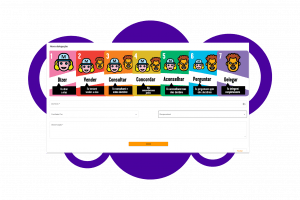Por: 7 de dezembro de 2021 3Min de leitura
Organizations need their gears to be maintained by free teams, with people who don’t rely on command to carry out their functions. For this, the leadership needs to promote autonomy, making it clear who is responsible, why and their level of performance. To delegate is to assign authority to someone to carry out certain activity(ies). Being a way of distributing trust for the results that will come from the efforts of other people.
Delegating is empowering the team in a non-binary way: “I do it” or “you do it”. It is a relationship of trust and maturity between those involved that will depend on the context, as there are levels that make it possible to classify the agreement with each person and their specific role.
The distribution of control and delegation of authority is done as follows:
Each level of delegation demonstrates how far the team can go, being able to decide, for example: about vacations, selection of new employees, working hours, improvements, etc. Just make the classification and make the agreement between the team and the leadership. As there is no duality, the best result will be balance.
It should be noted that the lower the level of delegation, the more centralized and hierarchical decisions are.
On the other hand, as responsibility increases, the team will have more autonomy.

It is the Management 3.0 tool in which the team demonstrates each member’s responsibilities and levels of authority. This functionality is available on beefor to promote the team’s empowerment and even if initially it has many occurrences in the first levels, it will have what it needs to support teams and leaders to build maturity towards a self-managing team.
Only beefor goes beyond agility, taking care of people and guiding teams in the best work model.
Also know: How to build an agile team with purpose, How Moving Motivators can help Agile HR and How to use the agile coach tip.